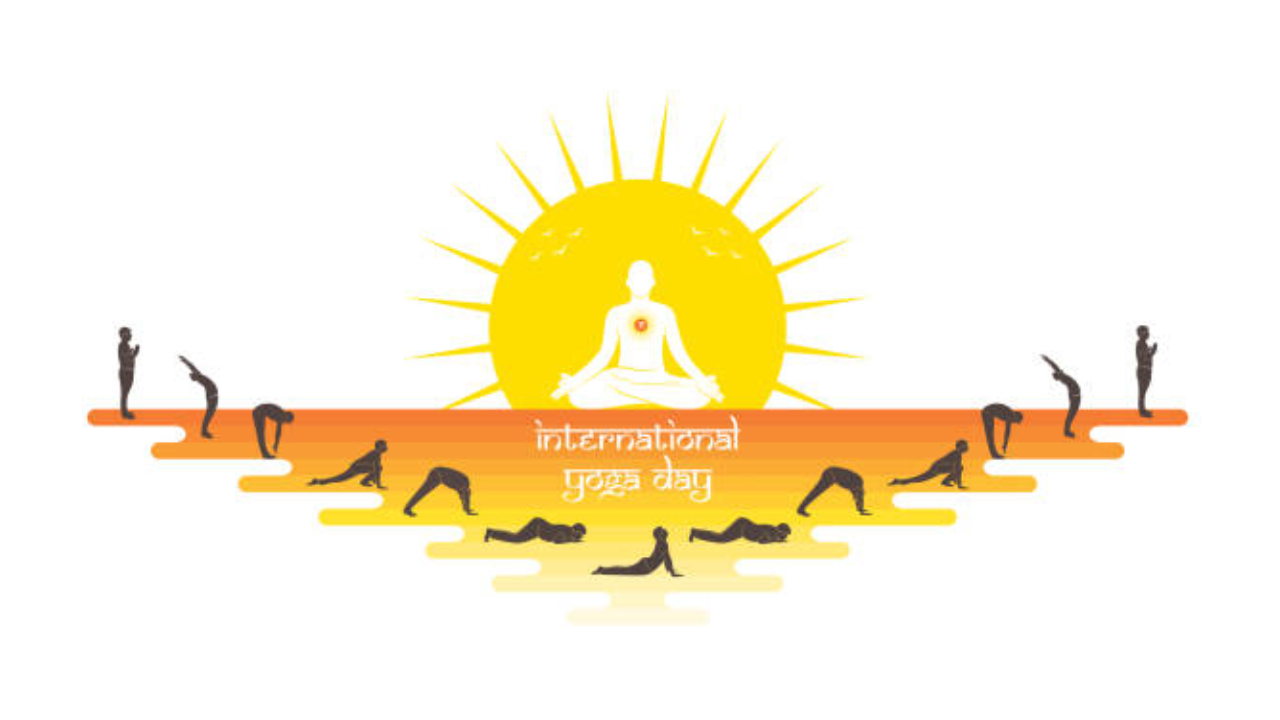[ad_1]
International days and weeks are observed to educate the public on issues of concern, to mobilize political will and resources to address global problems, and to celebrate and reinforce achievements of humanity, the UN says.
Every year, this ancient physical, mental and spiritual practice that originated in India, is celebrated with a theme. This year’s theme is Yoga for self and society.
What does this mean?
Yoga offers profound benefits for both individuals and society. On a personal level, yoga enhances physical health through improved flexibility, strength, and balance, while also promoting mental well-being by reducing stress, anxiety, and depression. Regular practice fosters self-awareness, mindfulness, and inner peace, leading to a balanced and harmonious life.
How yoga elevates overall well-being
For society, yoga encourages a culture of health and wellness. It brings people together, creating a sense of community and shared purpose. Group yoga sessions can foster social bonds and mutual support. Moreover, the principles of yoga, such as compassion, non-violence, and respect for all beings, inspire ethical behavior and social harmony.
Yoga’s emphasis on mindfulness and self-discipline can lead to more conscious living, reducing negative behaviors and promoting sustainable practices. By nurturing individual well-being and fostering positive social interactions, yoga contributes to a healthier, more peaceful, and connected society.
Yoga Day and India
The resolution establishing the International Day of Yoga was proposed by India under the leadership of Prime Minister Narendra Modi. “Yoga is an invaluable gift from our ancient tradition. Yoga embodies unity of mind and body, thought and action … a holistic approach [that] is valuable to our health and our well-being. Yoga is not just about exercise; it is a way to discover the sense of oneness with yourself, the world and the nature,” PM Modi had said in the 69th session of the UN General Assembly.
Importance of Yoga
Yoga is essential for holistic well-being, encompassing physical, mental, and emotional health.
Physically, yoga improves flexibility, strength, and balance, enhancing overall fitness and reducing the risk of chronic diseases. It supports cardiovascular health, boosts immunity, and promotes better posture and body alignment.
Mentally, yoga is a powerful tool for stress reduction and mental clarity. It cultivates mindfulness and relaxation, helping to alleviate anxiety and depression. Through breath control and meditation, yoga enhances focus, emotional stability, and resilience, fostering a calmer, more centered state of mind.
Emotionally, yoga encourages self-awareness and self-acceptance. It helps individuals connect with their inner selves, promoting a sense of peace and contentment. Yoga’s principles of compassion, non-violence, and interconnectedness inspire positive behaviors and relationships, contributing to personal growth and social harmony.
[ad_2]
Source link







